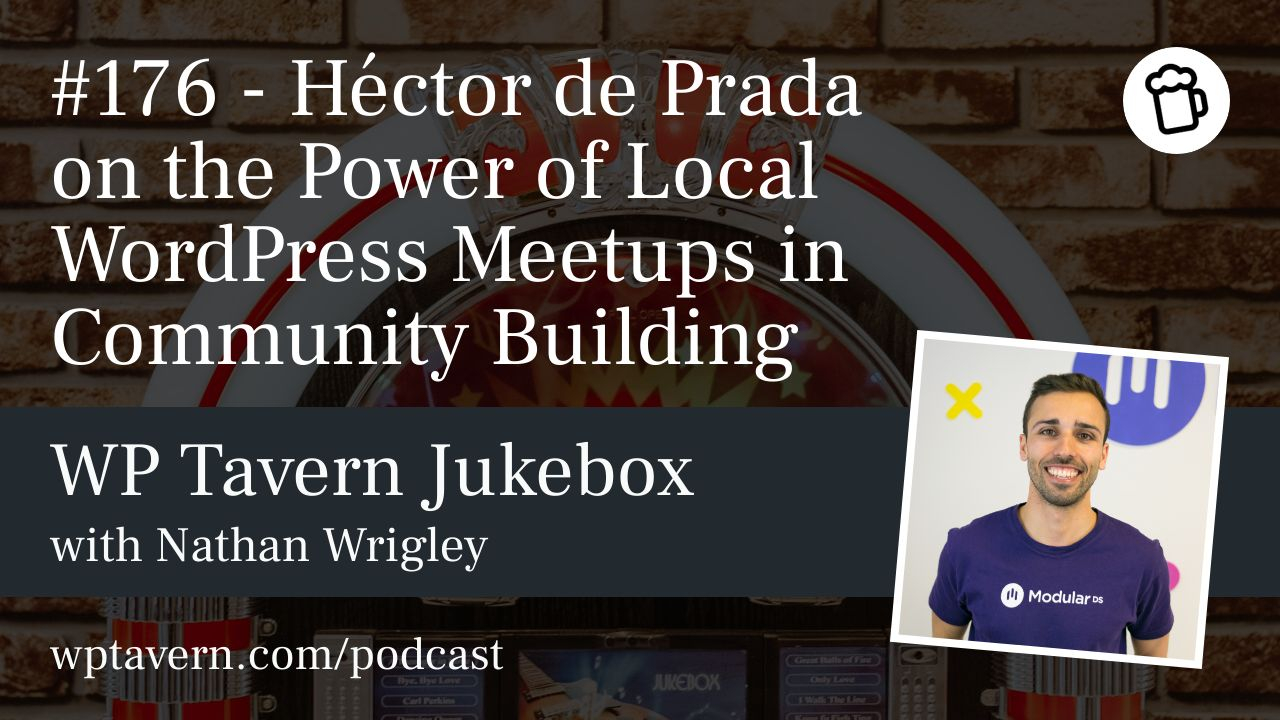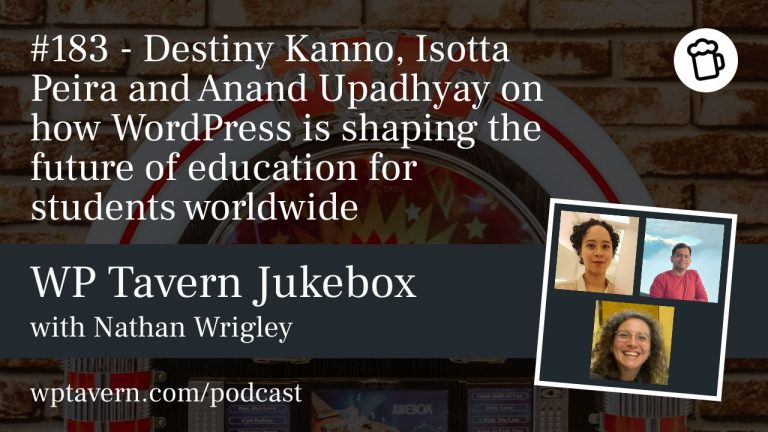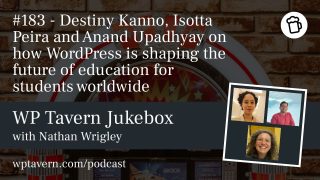Nathan Wrigley interviews Héctor de Prada at WordCamp Europe in Basel about running the revived WordPress Meetup in León, Spain, and the broader impact of local meetups on community and local tech ecosystems.
Who is Héctor de Prada
Héctor is a founder of Modular DS, a tool to manage multiple WordPress sites. He’s long been involved with WordPress development and community activities, writes a Spanish newsletter about the ecosystem, and co-organises the León WordPress Meetup.
Why organise Meetups?
Héctor gives two main reasons. First, having attended many WordCamps and Meetups elsewhere, he wanted the same connections, learning and inspiration available in his own city. Second, León is a smaller city where many young people leave; starting a Meetup was a way to kickstart a local tech ecosystem and create opportunities that keep people engaged locally.
History and scale
León’s Meetup existed before COVID but paused for around three years. Héctor and colleagues revived it about 18 months ago and run roughly six to eight events per year (pausing for summer and holidays). Average attendance is about 60 people — larger than typical regional Meetups — with fluctuations between ~50 and ~75 attendees.
How they attract attendees
– Meetup.com: They create events and send notifications to subscribers.
– Social media: Twitter and Instagram to share details.
– Physical flyers: Placed around university and civic tech hubs to reach students and local workers.
– Diverse topics: Covering a range from technical talks to broader digital-business stories attracts both specialists and non-experts.
Venues and format
They rotate venues — city hall, university spaces, government buildings, private companies — which keeps things flexible and allows different parts of the local ecosystem to host. Formats vary: standard talks, panel forums, interview-style sessions, and networking-focused evenings. Recent examples include a forum featuring three gastronomy businesses discussing digital transformation (including WooCommerce) — a non-obvious, highly successful theme that connected technology to a real-world vertical.
Team structure and workflow
The organising team is six people. They deliberately split responsibilities (social media, sponsors, venue logistics, design, speaker coordination, networking/catering) and rotate roles so no single person feels obligated to attend every event or handle the same task each time. This rotation helps sustain volunteer energy and ensures continuity if someone is unavailable.
Speaker support and programming
They tailor preparation to speaker needs. Experienced speakers require little input; conversational or interview formats get pre-shared questions to guide guests. Mixing technical and non-technical content keeps regular attendees engaged and helps newcomers feel included. Héctor emphasizes that WordPress should unite rather than narrow topics — it allows conversation across design, marketing, e-commerce, and more.
Finances and sponsorship
Costs are modest and mainly cover catering and occasional printed materials. They rely on two sponsors per event: a local company and a WordPress-related company (often a hosting provider), who typically reimburse catering invoices or cover costs directly. Venues have been offered free so far. Sponsors often provide merchandise or raffle prizes for attendees and speakers.
Community benefits
Meetups act as networking hubs where students, freelancers, agency owners, and entrepreneurs meet. Héctor highlights successful outcomes like job connections, collaborations, and referrals — concrete benefits that extend beyond presentations. He encourages newcomers to attend even if they’re nervous: initial small conversations at networking areas often lead to wider connections.
Support and learning for organisers
Organisers used WordPress Slack (Spanish channels) and WordCamps contributor days to get advice and practical help from experienced community members. Héctor advises prospective organisers to:
– Attend other Meetups or WordCamps to learn from experienced organisers.
– Use community Slack channels for practical questions and troubleshooting.
– Be transparent with sponsors about expenses.
Operational rhythm
The team meets about monthly: one month for the Meetup, the next to review the previous event and plan the next. Major coordination happens in an hour-long meeting; day-to-day progress is tracked in a WhatsApp group (venue booked, speaker confirmed, flyer/design done, etc.).
Tone and accessibility
They cultivate a friendly, casual atmosphere so attendees feel welcome and comfortable asking questions or networking. The goal is to be inclusive — not only for WordPress experts but for students and people from adjacent fields who can benefit from digital and business discussions.
Advice for new organisers
– Start by connecting with the larger WordPress community and local organisers.
– Rotate responsibilities to prevent burnout.
– Try varied formats to keep content fresh and attract broader audiences.
– Keep events accessible and focus on networking opportunities — that’s where much of the value emerges.
Location and contact
The Meetup is in León, in northern Spain. Héctor and the team welcome contact from anyone wanting help starting or revitalising a Meetup; they’re open to sharing their experience and advice.
This interview captures practical tips on organising sustainable local Meetups, growing attendance, securing sponsors and venues, and using WordPress community resources to build a welcoming, useful local tech ecosystem.




